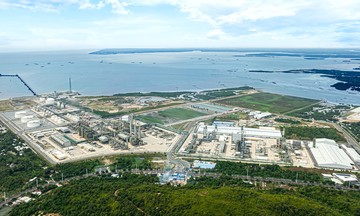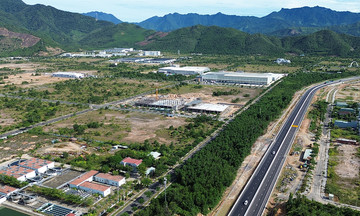On 27/7, the US and the European Union (EU) reached a trade agreement. Under the agreement, new import tariffs on EU goods sold to the US were set at 15%, effective from 1/8. While significantly lower than the previous levels threatened by Trump, these tariffs are still the highest since the 1930s.
"Businesses have woken up to the reality that they face historically high import tariffs. This is very difficult to change, unless the US economy suffers terrible consequences," said Andrew Wilson, deputy secretary-general of the International Chamber of Commerce (ICC).
The ICC has noted delivery delays and businesses reassessing their supply chain strategies. Trade with the US is now "extremely difficult." "The complexity of trading with Washington has reached unimaginable levels," Wilson said.
In the Moselle Valley (Germany), wine producer Johannes Selbach said the import tariffs are hurting both sides. They had hoped for tariff exemptions but now face a 15% levy.
"The import tariffs affect both Americans and us. Thousands of wine-producing families in Europe and importers, wholesalers, retailers, and restaurants in the US depend on this trade flow," Selbach said, warning of job and profit losses. His warehouse is filled with barrels marked "USA" in black ink.
 |
A vineyard in Moselle (Germany). Photo: Reuters |
A vineyard in Moselle (Germany). Photo: Reuters
Each industry feels the impact differently. Luxury brands can raise prices to accommodate the import tariffs. Large companies can also absorb some profit reduction or shift some production to the US. Consumer goods giants like P&G have announced price increases in the US to offset the impact of the tariffs. Adidas said they might also raise prices.
Of the 300 companies tracked by Reuters, nearly 100 have announced price increases due to trade tensions. Most are European businesses.
Trump said the import tariffs aim to rebalance trade for the US and revive its manufacturing sector by attracting investment and bringing jobs back home.
However, the difference in US tariff levels with other countries poses a challenge for businesses. Major manufacturing hubs like Mexico, Canada, India, and Vietnam now face higher tariffs than South Korea or Europe.
Small businesses cannot quickly change production and supply chains. Hugo Drappier, director of Champagne Drappier, said this type of wine can only be produced in a specific region of France. "This is a very labor-intensive industry that cannot be relocated. The work can only be done here. We cannot move the vineyards to another country," he explained.
He said some orders have been delayed due to import uncertainty. They had hoped for more positive outcomes from the negotiations. However, the 15% tariff is still lower than the 30% previously threatened by the US.
Laurent Cohen, CEO of perfume company Corania outside Marseille (France), is looking for new markets in addition to finding ways to maintain business in the US. The US currently accounts for 25% of Corania's sales. But this also means he has to reduce profits and increase prices there.
"I appreciate that the uncertainty has ended. But with a 15% tariff on mass-market perfumes, we will have to find unprecedented solutions to continue doing business in the US," he said.
Ha Thu (via Reuters)












